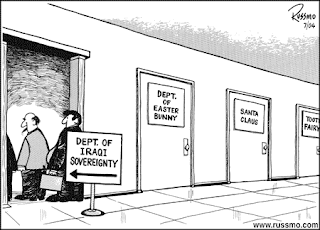Sovereignty can be easily established as the authority over
one’s existence. This can be applied to many cases, such as individuals, a
community, or a nation-state. Here I’m going to talk about how the principle of
sovereignty is fundamental in IR. Now let’s question this statement, what does
it really mean? Sovereignty can be easily seen as supreme power or authority.
This means that for instance, a nation is allowed to become a self-governing
state, where it receives national sovereignty.
Going back to the question, what does it really mean when
the
principle of sovereignty is fundamental in International Relations (IR).
There are simple principles of sovereignty. Political self-determination can be
easily seen as for individuals, communities or national. Self-determination can
be seen as “the ability of the people to govern them without the outside
interference—the ability to make our own laws in response to our needs, and to
reject laws which are neither needed nor wanted.” When a nation, so to say, is
allowed to take over sovereignty, this country or nation should know its own
consequences. Hereby I’m talking about taking responsibility and reliability.
The country is supposed to be able to govern itself and not be affected by the
outside. This means that responsibility and taking charge is key. Now lets talk
about economic sovereignty. What does that really mean? We can see it as “the
ability of the organism to control its own economy in response to its own
needs.” This means that if the country has a growing economy it is responsible
for it’s own demand and supply, in another case its own “needs”. This may be an
example of keeping its own currency, trading with country, controlling imports
and exports, and keeping track of taxes. Another principle can be seen as
border control. The country should be responsible and educated about what
leaves and enters the country, as they will be responsible for what they inject
into the country. Border control can be an example of a green principle, where
it strives for maintenance of sustainable population level, which protects its
environment.
Sovereignty can also be seen as the independence to survive,
and control it’s own country (as we’re speaking and taking note as nations).
Food and water self-sufficiency is also determined in sovereignty. Not only is
a nation required to get their own natural resources, but food and water
sovereignty is the ability to provide these essentials, than being dependent on
outside resources, which can be taken away any time. In another case energy
independence is also a factor. Having a country in the 21
st century
more and more is based on energy. In the world we live today, we need energy
for transportation, light, cooking, living and everything possible. Think about
the energy we use daily and multiply it for your whole population. THAT’S A
HOLE LOT! A goal of a nation-state is always to read sovereignty to achieve
energy independence. By that it won’t be able to depend on other countries to
be their support system. When achieving energy independence a country does not
have to depend on outside sources, they are able to develop their own energy.
Self-defense or self-determination basically revolves around power and
sovereignty is supreme power or authority, which is why it makes perfectly
sense that self-defense and self-determination is a major factor. Sovereignty
depends on power, an individual, community, nation needs to be able to defend
itself. If it cannot, there’s no real sovereignty. A great example of this can
be how Iraq is getting threatened. I mean, why not North Korea? This is merely
because North Korea has the bomb. This is an example of sovereignty and being
able to defend itself, which is one of the most significant aspects a country
could ever have.
Simply sovereignty is a very powerful in the 21st
century. Everyday we strive for independence and power. People grow up and
educate kids in achieving sovereignty. In today’s world everything is about
“competition” being “better than everyone”. In schools kids learn to get better
grades and be better. Jobs are given to better people, rather than who really
deserves it. These are examples why sovereignty is one of the most important
issues in today’s world. International relations have been one of the main
contributors to sovereignty. We do everything in achieving something, this is
why this is so important. Thought sovereignty can be overlooked as something
good, that’s not always the case. Sovereignty also creates gaps in humanity.
Not only does it give us people a reason to judge and look at human kind as a
competition, but it affects the way we spend our daily lives.
It’s practically obvious to say that sovereignty has been
part of human nature since caveman’s time. We have just failed to recognize how
it has been impacting our lives through the centuries. In today’s world, we are
more understanding of our surroundings and more contempt with analyzing human
nature. Every country, person, or community strives for sufficiency and
independence, but not everyone is able to give that. This is why sovereignty
has been a big part of our society. We live by the rules, and encourage
competition. Every country is determined to be the wealthiest, protected,
self-determined country. This is a great example of the US who strives to be
the best in trade and power. This manages to give countries a strong nation and
a threat free society from other countries.











